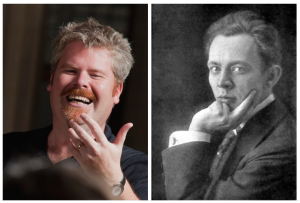Podcast: Play in new window | Download (Duration: 1:42:25 — 140.6MB) | Embed
Subscribe: Spotify | TuneIn | RSS | More
This episode celebrates the artistic accomplishments of two of the finest twentieth century singers to come from the environs of Dresden, Peter Schreier and Olaf Bär. Both were former child choristers in the Dresdner Kreuzchor (albeit from two different generations). Both went on as adults to rise to the top of the musical firmament, particularly in their performance of German art song. Each of these two singers were celebrated in the music of Bach, and in their performance of what their fellow Germans call Kunstlieder and both made memorable and substantial recordings of Christmas art songs, Schreier’s in 1979, accompanied by the late Norman Shetler, and Bär’s in 1996, with the superb Helmut Deutsch. The focus in this episode is on their performance on these respective recordings of the Christmas songs of Max Reger, Engelbert Humperdinck, and Hugo Wolf. We also hear a recording of Schreier during his days as a boy alto in the Dresdner Kreuzchor) singing a selection from the Weihnachtslieder of Peter Cornelius.
Countermelody is a podcast devoted to the glory and the power of the human voice raised in song. Singer and vocal aficionado Daniel Gundlach explores great singers of the past and present focusing in particular on those who are less well-remembered today than they should be. Daniel’s lifetime in music as a professional countertenor, pianist, vocal coach, voice teacher, and author yields an exciting array of anecdotes, impressions, and “inside stories.” At Countermelody’s core is the celebration of great singers of all stripes, their instruments, and the connection they make to the words they sing. By clicking on the following link (https://linktr.ee/CountermelodyPodcast) you can find the dedicated Countermelody website which contains additional content including artist photos and episode setlists. The link will also take you to Countermelody’s Patreon page, where you can pledge your monthly or yearly support at whatever level you can afford.




